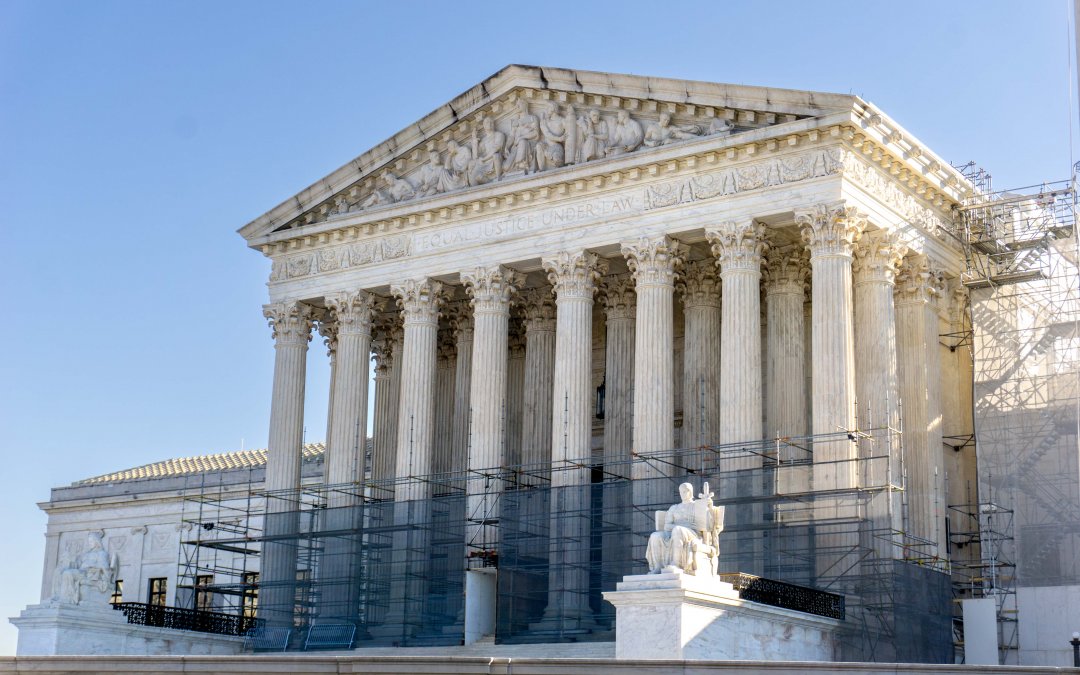WASHINGTON — The U.S. Supreme Court appeared to favor a moderately flexible standard to dictate when law enforcement could enter a home without a warrant in cases of emergency after hearing oral arguments in Case v. Montana on Wednesday.
The court’s decision, expected by this coming summer, may clarify what standard law enforcement must meet in order to enter a home without a warrant under the Fourth Amendment.
The Fourth Amendment generally requires law enforcement to obtain a warrant or meet the legal standard of probable cause before they enter a home. However, the Supreme Court has historically recognized some exceptions in cases of emergencies.
In Case v. Montana, police officers responded to William Trevor Case’s Montana home in 2021, after hearing Case had threatened to commit suicide. When Case emerged from a closet, one officer saw an object near Case’s waist that he thought was a gun and shot him.
Case, an army veteran with a history of mental health issues, was later charged with assaulting a police officer.
A trial court denied Case’s motion to exclude evidence obtained after police entered his house without a warrant. A divided Montana Supreme Court upheld that ruling, concluding that police can enter a home without a warrant in cases that do not involve criminal investigations as long as the entry is “reasonable given the facts and circumstances.”
On Wednesday, lawyers for Case argued that law enforcement should have had to have probable cause to enter his home. Lawyers for Montana said law enforcement needs more discretion. Both referenced a nearly 20-year-old case, Brigham City v. Stuart.
In that case, the Supreme Court held that police may enter a building without a warrant when they have “an objectively reasonable basis for believing that an occupant is seriously injured or imminently threatened with such injury.” This standard is widely interpreted to fall between “reasonable suspicion” and “probable cause.”
Justices reiterated the relevance of this intermediate standard on Wednesday, while lawyers for both sides showcased different interpretations.
In their arguments, Case’s lawyers reasoned that the language in Brigham City is similar to probable cause. The justices seemed unconvinced.
Justice Elena Kagan said, while probable cause is not “self-defining,” its definition rests in precedent inside of “an investigatory criminal context.”
“In this context, [of emergency home entry] that way of figuring out whether there’s probable cause just disappears,” Kagan said.
Some advocacy organizations, including the ACLU, worry that lowering the standard for home entry would invite invasions of privacy and abuse, as officers could use an “emergency aid” rationale to enter a home and pursue investigatory aims once inside. Additionally, some argue that an increased number of home entries would exacerbate the safety risks posed to officers and occupants when law enforcement enters a home.
The Supreme Court has previously laid out a “community caretaking” exception to the Fourth Amendment’s warrant requirement, which allows police to act in a non-law enforcement capacity. More recently, in Caniglia v. Strom, the Supreme Court ruled that this exception does not extend to warrantless searches and seizures in the home.
Still, some lawyers, including Michael Mannheimer, a professor at Northern Kentucky University, who filed an amicus brief in the case, say that police should be allowed entry into a house on the lower standard of reasonable suspicion for public safety or public health emergencies, so that they can respond to crises in a timely manner.
“That’s what’s at stake,” Mannheimer said. “There are going to be situations where people are victimized behind closed doors and the police are not going to be able to do anything about it.”
When questioning Case’s lawyer, Justice Samuel Alito voiced a similar concern, listing the evidence the police had compiled about Case before they entered the house, including having seen “an empty holster and an apparent suicide note.”
“I mean, what more did they need?” he asked.

